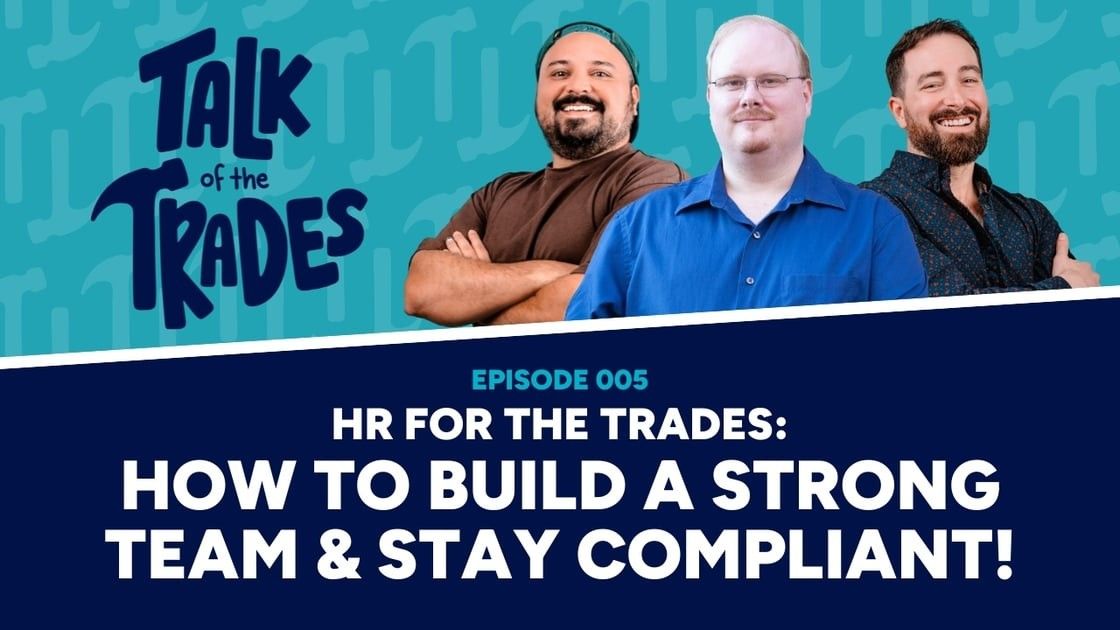How to Stop Overreacting to Employee Missteps
28 May 2025
Being a leader is hard. Learn to stop, breathe, ask questions, and talk to HR before you say (or do) something you'll regret.
Your employees are your company's greatest asset. They're a fantastic group of people, working to help represent your Brand and provide solutions to customers, with everyone working happily and diligently toward a common goal.
Right?
Or maybe your business is NORMAL, and even your best employees can sometimes become your greatest source of frustration. It might be that one toxic employee who brings everything down, or a full culture of grumbling, complaining, taking shortcuts, and refusing to comply. Don't even get me started on the complicated business dynamics when spouses or parents/kids work together in family-run companies. Yes, if you work with people, you're bound to get irritated at some point.
So what do you do when an employee does something so outlandish that it takes you from 0 to 10 in three seconds flat?
First: STOP. BREATHE. TAKE A MOMENT. Don't let your emotions overwhelm you. Know that your first reaction might not be the best one. If you need to, ask for a minute to step away and calm down before you continue the conversation.
Then instead of reacting to what you THINK just happened, ASK QUESTIONS. You'll be justifiably upset if your technician calls to tell you he crashed the company truck... again. But what if he was rear-ended and there was no possible way to avoid it? What if there was no real damage and he was just following standard procedures to keep you in the loop? What if the accident caused a fatality and your tech is in shock and can't begin to process what's going on? Take time to figure out what happened, the steps that have already been taken, the current state, and more. You'll regret screaming at a tech if you find out it was a minor scratch, and he's standing right next to the customer who can hear every word you're saying and now thinks you're insane. Continue your investigation over time until you have all the info you need to respond.
Once you've taken a moment to calm down and you have a fairly good idea of what happened, TAKE ACCOUNTABILITY
for any role YOU might have played in the situation. If a tech isn't wearing PPE because you never showed him where to find it, it's not completely his fault. If an employee tells an off-color joke that offends a coworker, but you've encouraged and laughed at similar jokes in the past, you might have set the wrong expectations. Before placing all the blame on the employee, ask yourself if you contributed to the situation in any way.
Finally, DETERMINE THE COURSE OF ACTION. Depending on the situation and the details you uncover during the investigation, this might involve coaching, verbal or written warnings, suspension, or termination. Or it might mean developing better training, or adjusting your expectations if you were out of line. Make a plan, and follow through with it.
There's one more thing to do at any point in this process: CALL FOR HELP. Sometimes when emotions run hot, you just need to vent. Or maybe you have no idea what to do in this crazy situation. You can talk to another company leader (or a therapist), but you may benefit from having a third-party, unbiased HR expert on call to listen and walk you through what you need to manage the situation effectively and compliantly. That's what The Big Picture Consulting is all about. Give us a call when you don't know how to handle your "my employee just..." situation, and we can take you through all the steps you need to survive the crisis.

Written warnings can be key in managing employees, so you need to know both the art and the science of doing them correctly. These tips for what to include - and what NOT to include - in your written warnings will help you to communicate clearly to your employees, and get you set to defend yourself in a potential legal claim against you.

Reasonable Accommodations in the workplace are no joke - you can get into serious legal trouble if you don't comply with the ADA. Yet here's a case study on a company who terminated someone for an issue directly related to their disability and was not held legally liable. Check out the details of how this might apply to your business.








